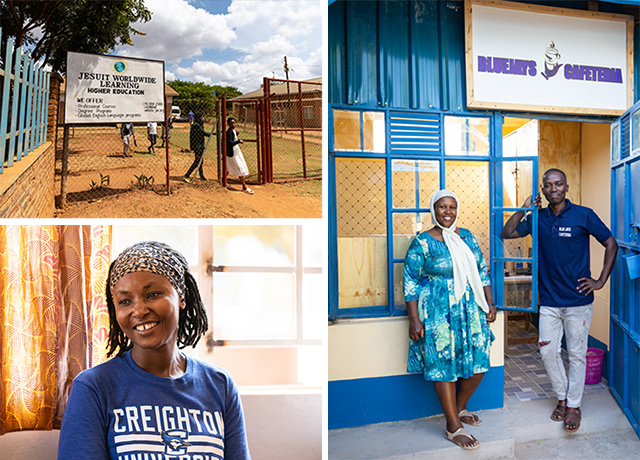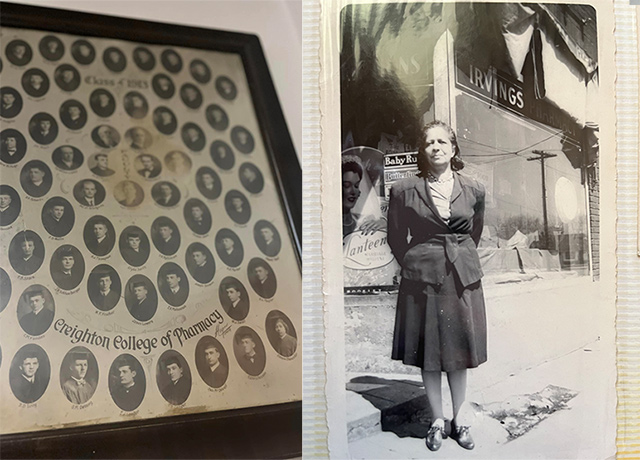Featured Testimonial About Creighton University
Through their efforts, the students remind us that with the support of places like Creighton, talent and ambition can flourish anywhere, transforming challenges into opportunities for growth and innovation.
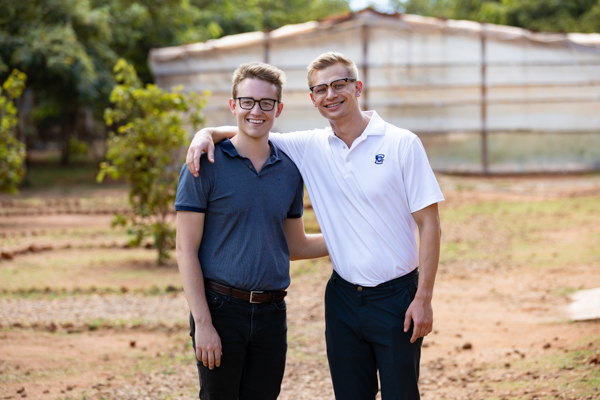
This past winter, Creighton President the Rev. Daniel S. Hendrickson, SJ, PhD, led a Creighton delegation of University staff and alumni to see the progress of Creighton Innovation Grant-funded businesses in the African refugee camps of Dzaleka and Kakuma. (You can read more about the grant program and delegation here or see a video here.)
The alumni whom Fr. Hendrickson invited on the trip — because of their international service experience — were Peter Goeckner, BA'17, and Erik Sheagren, BS'18. The latter shared his own account of the experience and the ways it changed him.
* * *
By Erik Sheagren, BS’18
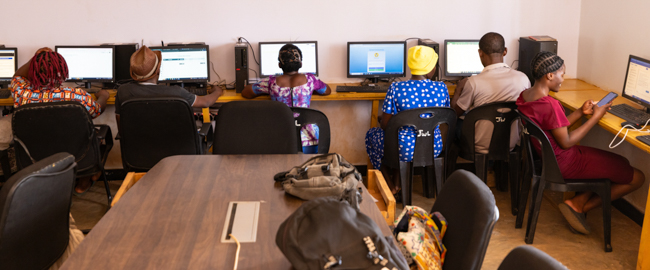
“Where do you charge the computers?”
“Oh no, we don’t have electricity in here.”
“You don’t have electricity in your computer science school? How do you run your laptop?”
“We use the neighbor’s generator at night. It’s just outside, next to the goat pin.”
* * *
When I was asked to be part of the Creighton delegation to visit the Kakuma and Dzaleka refugee camps in Kenya and Malawi, I was excited but also a bit apprehensive. The project's goal was interesting and clearly important. We were going to interview several refugees in both camps who were associated with Jesuit Worldwide Learning (JWL). About a year earlier, these refugees had proposed various projects they wanted to work on, and Creighton had funded them to do so through the donor-supported Innovation Grants program.
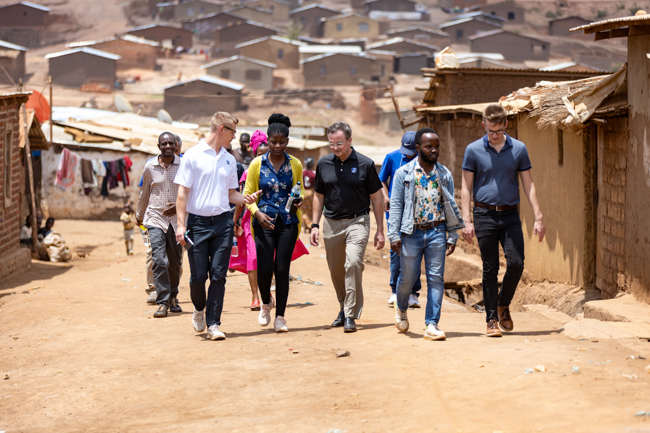
The projects centered on such matters as sustainable development, agricultural advancements such as greenhouses and chicken coops, producing basic materials like soap and charcoal, and women’s education facilities. Our purpose was to interview the grantees who headed these projects, understand their missions, document their work and advocate for their support.
I was apprehensive because I expected to have a destabilizing experience. Looking over the list of projects, I saw that the trip would re-center my sense of importance and urgency about global issues. As I'm a middle-class American with a graduate degree, global poverty easily and conveniently slips from my daily thoughts. Being reminded so acutely of existent problems in the world — and asking myself why I’m not working on them — struck me as a way to become uncertain about almost everything I do and spend my time on.
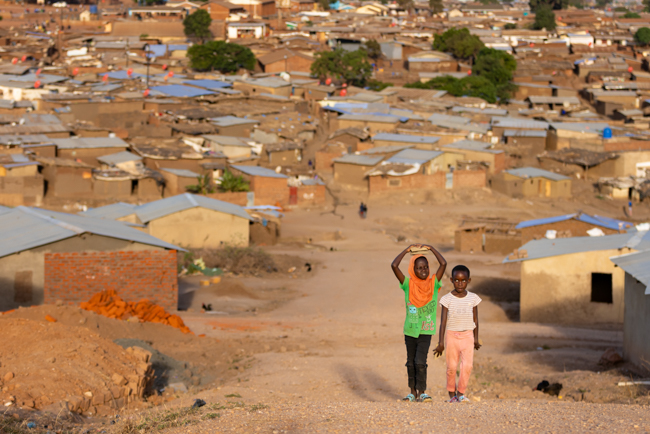
Still, I wanted to help where I could. So, I gratefully accepted Fr. Hendrickson's invitation and joined the delegation.
* * *
When we arrived at the camps, we spent several days moving between the different projects and interviewing the uniformly impressive people in charge of them. Everyone was thoughtful, practical and extremely knowledgeable about every aspect of the projects they were working on. As I expected, the concerns of the people who lived in the camps were of basic sustenance, but their solutions were amazingly inspiring.
Living in food security, I don’t often consider where my food comes from. But seeing a greenhouse filled with vegetables sitting on a plot of otherwise arid land makes the problem of food sourcing apparent.
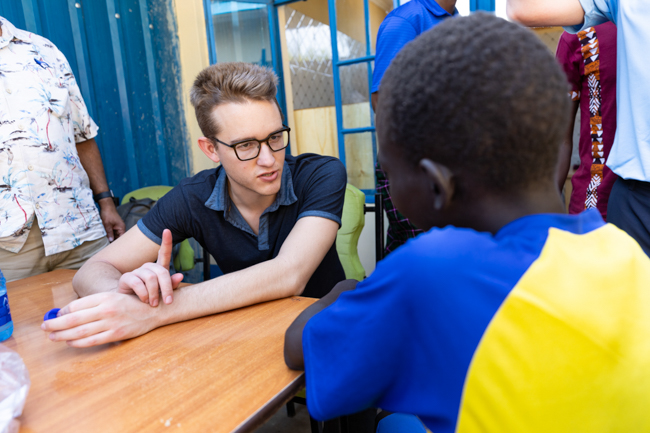
I was surprised when meeting with high school students at the JWL campus that our conversation turned to artificial intelligence. The topic interests me because I am building a system with AI to publish user-generated books. When the students learned this, they were eager to know more and to discuss the implications and strategies for using AI effectively and responsibly. During our group discussions, students asked what the line was between using platforms like ChatGPT to improve their writing on assignments versus plagiarism.
After our discussions at both camps, I was approached by perhaps a dozen students wanting to talk about different aspects of AI, many of which were quite technical.
Some wanted to build their own chatbots that could answer questions about resources available to them in the camps so the students could more easily navigate the byzantine systems of acronyms for different policies, NGOs and services that every person in the camp must use. Another student wanted to better understand which language models were best suited for living with unstable Internet connections by downloading a model that could run locally. Another wanted to use AI and computer vision on his phone to monitor nearby beehive health. And several more students were simply bewildered by what they had seen on YouTube and TikTok about the exploding AI industry and wanted to understand how they could begin to harness that power.
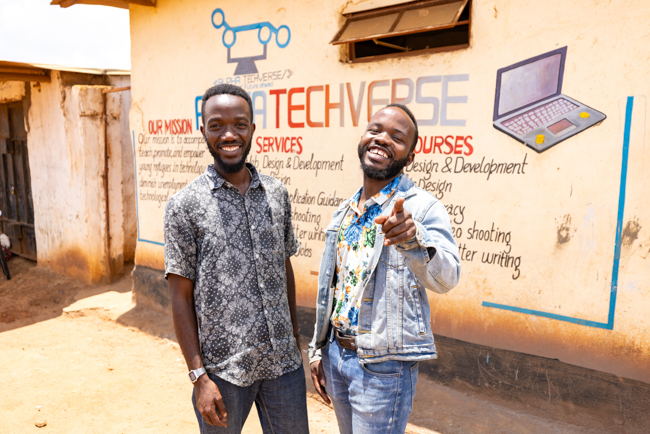
There was a self-evident level of interest in using artificial intelligence among many, perhaps the majority, of high school-aged students we met.
This was most striking in one of the last project interviews of the trip. In the Dzaleka refugee camp, we met Emmanuel and John, who were heading the Alpha Techverse project.
* * *
With a team of 10 software engineers, Alpha Techverse's ambition is to create a digital consultancy group that serves businesses abroad by providing low-cost coding labor. Emmanuel has already taught several members of his growing staff, mostly in Python and PHP. His ambition is to create a school-to-work pipeline, training members of the Dzaleka refugee camp in the skills required by the companies he serves.
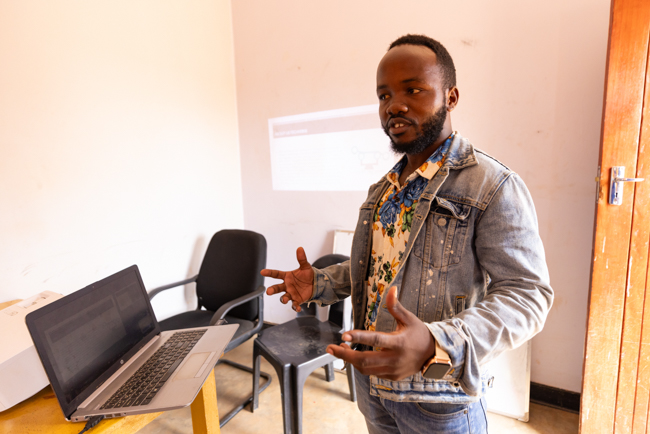
Recently, Emmanuel has been experimenting more with AI and is doubling his focus on teaching his students best practices with the hope and expectation these skills will be marketable. In doing this, he aims to educate and empower members of his community simultaneously, giving them the skills they need to gain economic self-betterment.
All of this Emmanuel and John are doing in a building that does not have electricity.
By investing in the education and empowerment of refugee communities, Emmanuel and John are crafting a future where technology serves as a ladder to economic and social mobility. As Alpha Techverse continues to grow, its impact extends far beyond the confines of the camps, offering a model for how tech education can be a force for good in the world’s most vulnerable communities. This was another way the trip was destabilizing, just not in the way I had expected.
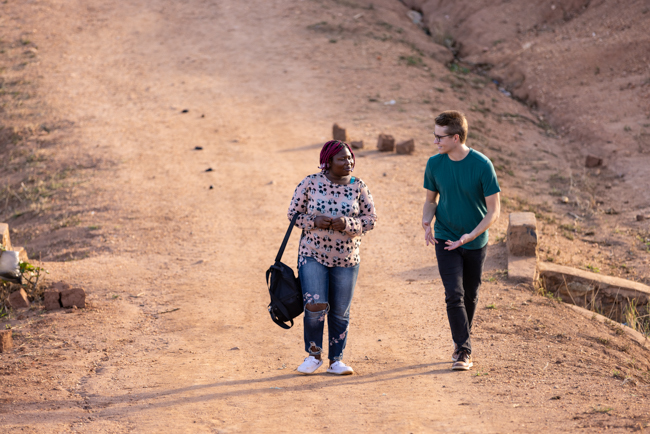
* * *
The experiences I had in Kakuma and Dzaleka impressed upon me the sheer extent of human need in the world. Even now, it is difficult to fully recall my sense of awe at just how sprawling the camps were, how many people (especially children) lived there and what amazing feats people performed as part of their daily lives. The disparity in what people must bear as a consequence of where they are born remains one of the great injustices in the world.
But my brief time in the camps was also destabilizing because it changed my conception of what is possible in conditions so dire.
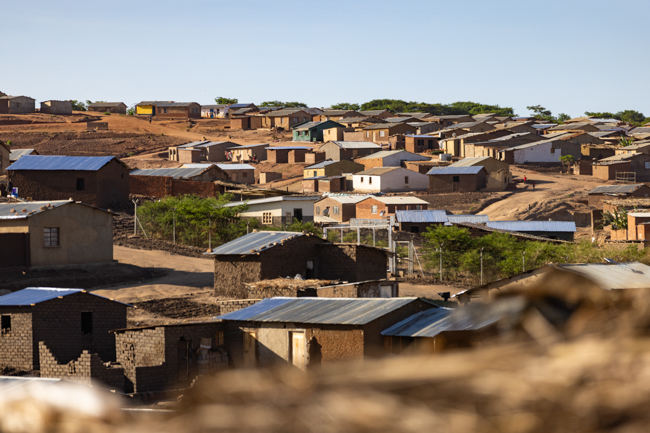
Despite the stark disparities that exist, the ingenuity and determination of individuals like John and Emmanuel at Alpha Techverse and the other JWL students offer a compelling example of what is possible. They are not only building a digital bridge out of poverty but also forging a path toward a more inclusive and equitable global economy.
They are undoubtedly not alone. What I saw is an enormous population of people at the periphery of the world economy who are hungry consumers of media and who have every ambition to transition from being spectators to active participants in a growing global culture.
Technology’s promise of interconnecting the world has never felt truer to me. Through their efforts, the students remind us that with the support of places like Creighton, talent and ambition can flourish anywhere, transforming challenges into opportunities for growth and innovation.
Read more about the Africa delegation and Innovation Grants program here.
